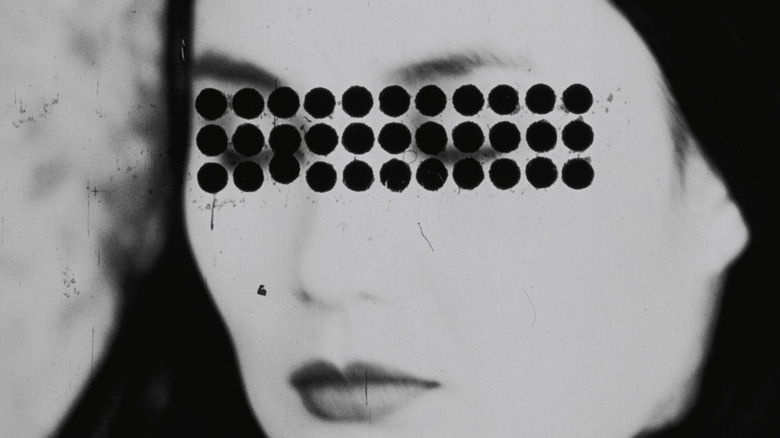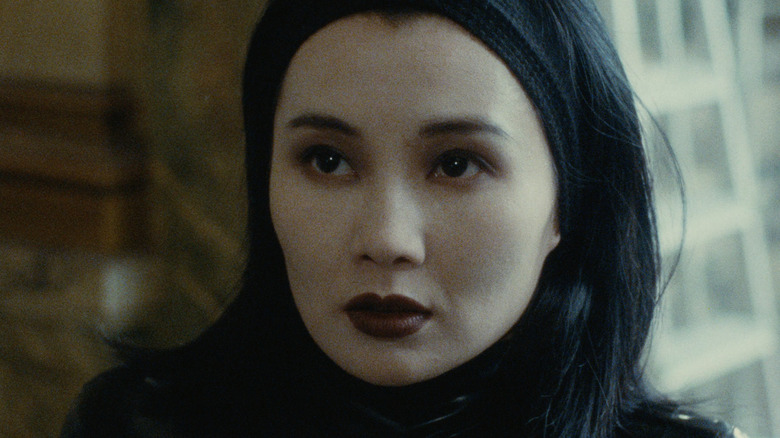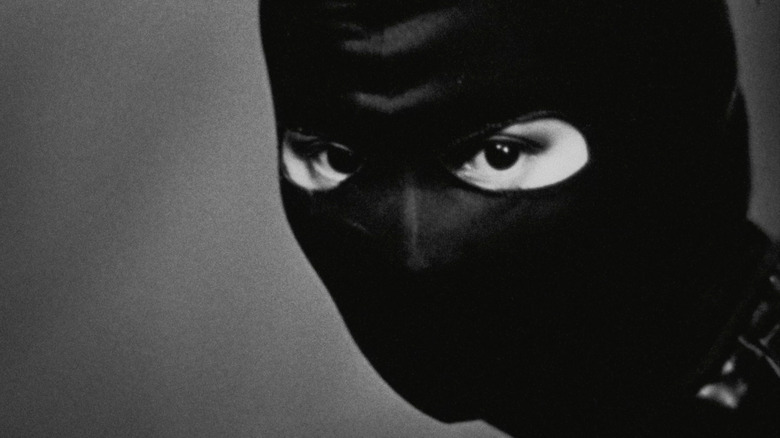The Daily Stream: Irma Vep Perfectly Deglamorizes The Filmmaking Process
(Welcome to The Daily Stream, an ongoing series in which the /Film team shares what they've been watching, why it's worth checking out, and where you can stream it.)
The Movie: "Irma Vep"
Where You Can Stream It: HBO Max, Criterion Channel
The Pitch: Hong Kong legend Maggie Cheung, playing a version of herself, has been hired as the lead in a remake of the classic silent serial "Les Vampires" by a fledgling French filmmaker named René Vidal (Jean-Pierre Léaud). The production is a bit of a mess, as many of Vidal's directorial choices baffle everyone, Cheung doesn't speak a lick of French, and journalists are looking to sink their claws into the trouble. Adorned in a classic black latex catsuit, Cheung becomes the object of fascination of both the director and the film's costume designer (Nathalie Richard), and the reality of Maggie Cheung the actor and the jewel thief character she plays start to blur together.
Why it's essential viewing
Olivier Assayas, one of the great directors of the last few decades, is taking another crack at the story of "Irma Vep" in the form of a miniseries on HBO starring Alicia Vikander, which is set to premiere just a few days away from when this is published. Before diving into what is hopefully a phenomenal television program, let's go back to its roots.
Assayas' "Irma Vep" is one of the great films about moviemaking. When most people say that, they are referring to capturing the magic of the process, the romanticization of being an artist. That is not the case in "Irma Vep."
Assayas' depiction of filmmaking has almost no glamor to it. The production offices are a frantic mess. Everyone is overworked and on the edge of snapping. People use artistic integrity and impulse as a way to justify their fetishes and possessiveness. Making movies is often a messy process where so many have to put up with so much nonsense in order to do the job they actually love to do. "Irma Vep" captures this unease brilliantly, especially in how the film treats Maggie Cheung.
While she is obviously a phenomenal actor, she is brought in because of how she looks, specifically in a skintight latex catsuit. How she is approaching the character is not as important as how the suit accentuates her figure. For the director, it is how her body moves that excites him. For the costume designer, it is her form that excites her. The version of "Les Vampires" being made is seemingly only being born out of a lustful gaze of Maggie Cheung, and nobody really seems to care about how she feels about that, leading her to basically dissociating her actual self into the character.
The fickleness of art
One element of filmmaking that has always fascinated me is what appears to be completely arbitrary decisions on the part of the filmmakers, especially when it comes to casting. An actor could be perfect for a role but be too tall, too short, too overweight, too skinny, or have some other aesthetic detail that dissuades a filmmakers from casting them. Every person making a movie has a specific aesthetic milieu in their head, and because of that, an actor can be dismissed completely out of hand based solely on their appearance.
So, when another director takes over the "Les Vampires" project after René has something akin to a complete breakdown, he is deeply confused as to why a Hong Kong actor would be playing this lead part, and he wants to replace Maggie Cheung with her white, French stunt double. Could Maggie Cheung capably tackle this reworking of the movie she signed up for? Absolutely, but the new director needs to indulge in his own fantasies, just as René did with her. The male gaze of filmmaking continues on.
Digging into the thematics of "Irma Vep" makes it seem much harder to watch than it actually is. It is not some dire diatribe about the state of filmmaking. It's a satire that both has fun with and deconstructs every aspect of filmmaking. It becomes an even more fun, tangled mess when you take into account that Olivier Assayas and Maggie Cheung got married after making this movie (though now divorced), further complicating the artist/muse relationship at the heart of the picture. I have yet to see Assayas' updated "Irma Vep," but as long as we have his original film, we can always come back to it and peel off more layers than you could imagine.


